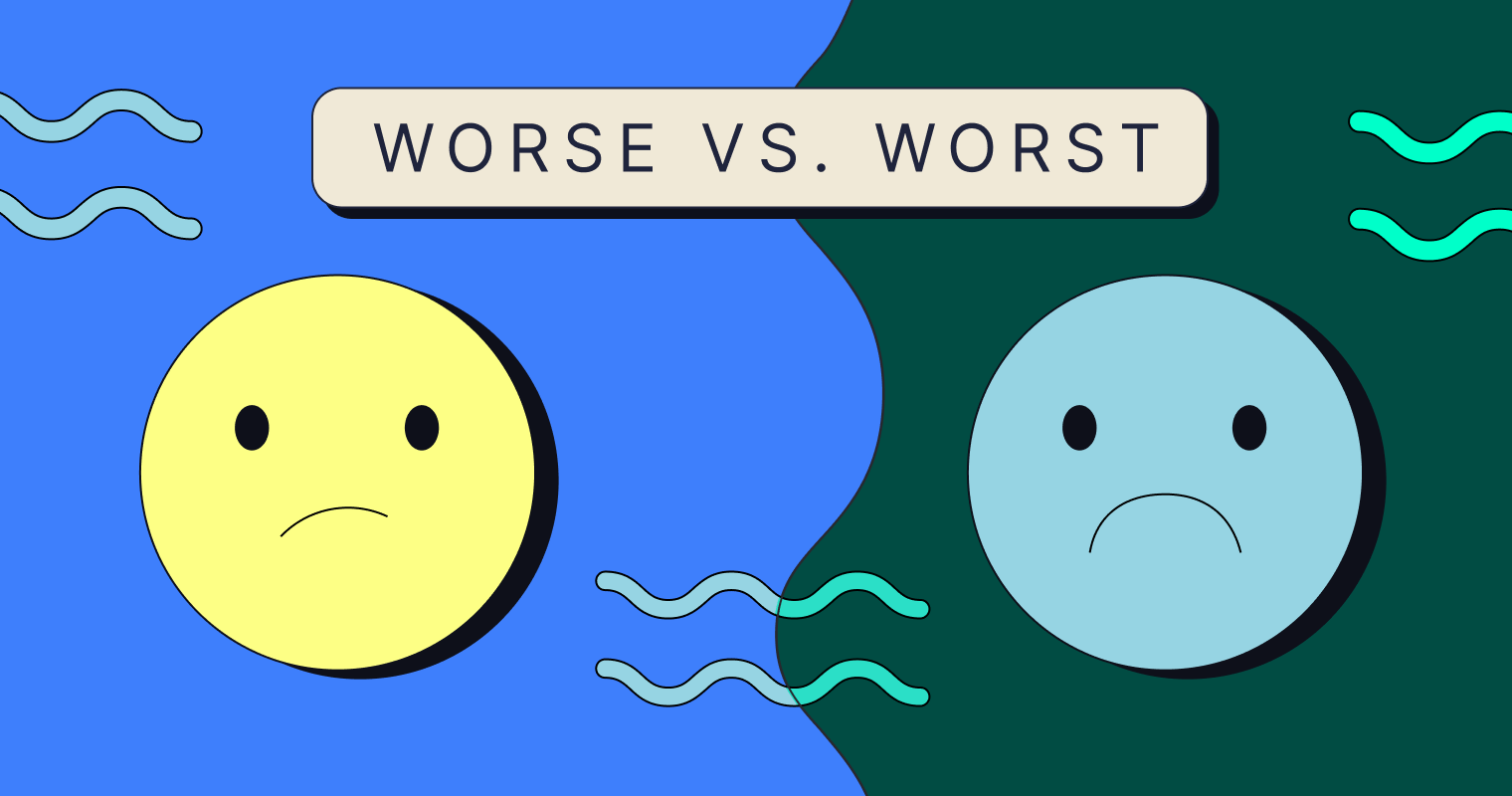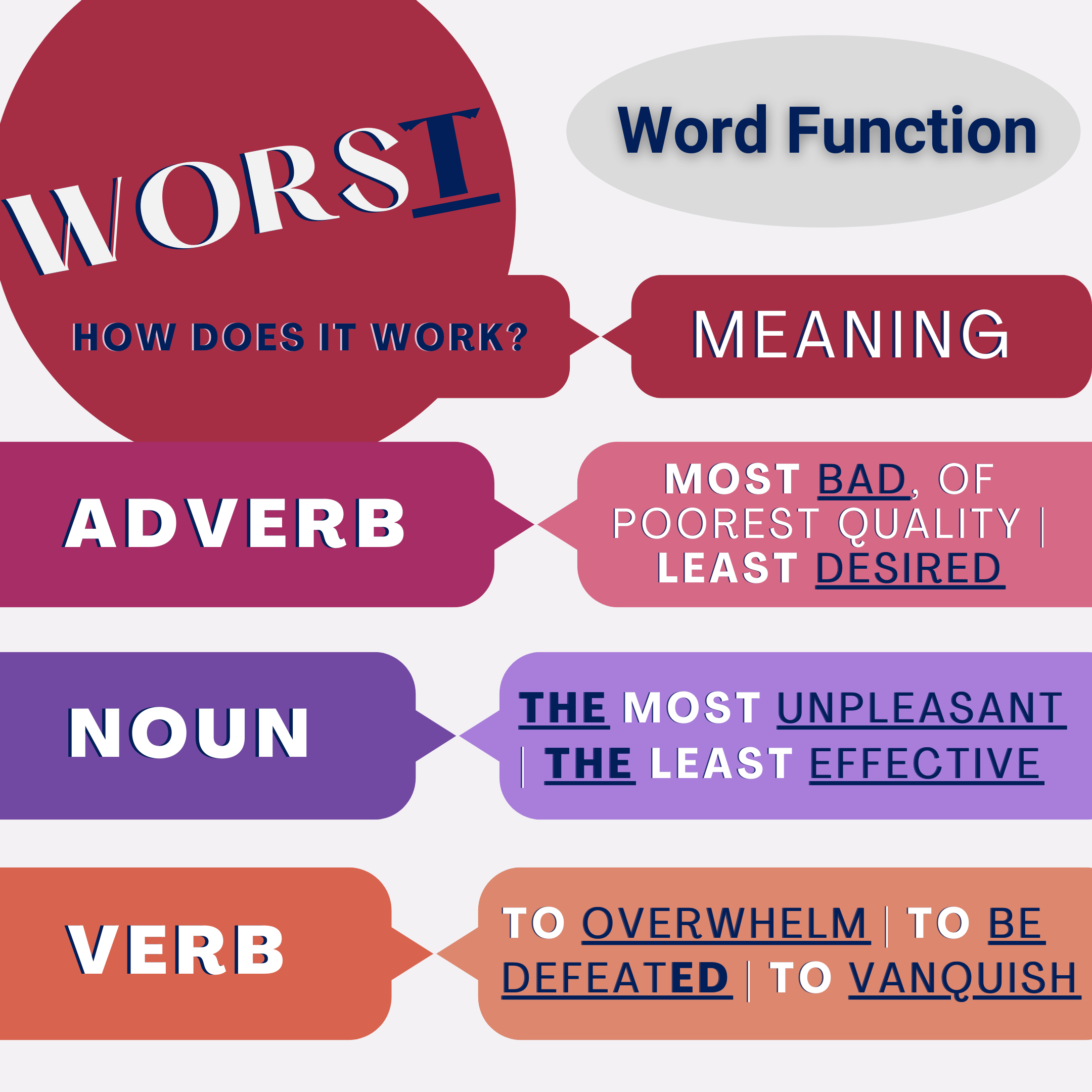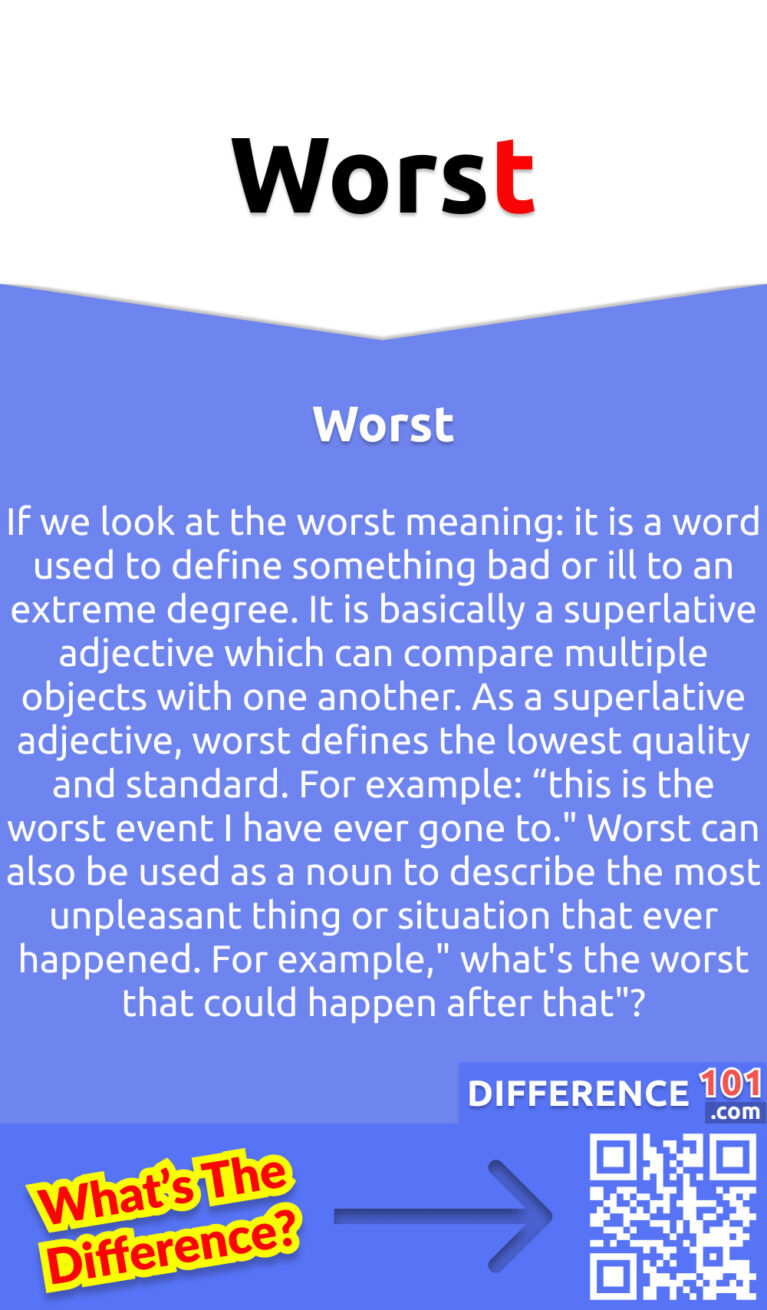Finding Your Path: Understanding The Worst Colleges In America List And What To Avoid
Choosing where to continue your education, it's actually a pretty big deal, isn't it? For many folks, a college degree feels like a ticket to a brighter future, a chance to learn new things, and perhaps, just perhaps, land a really good job. Yet, as you look at all the options out there, it's easy to feel a bit overwhelmed. You're probably hoping to find a place that truly helps you grow, not one that leaves you feeling like you've wasted precious time and money. That's why, you know, understanding the idea of a "worst colleges in america list" isn't about shaming institutions; it's more about helping you make a smart, informed choice for your own journey.
When we talk about the idea of a "worst colleges in america list," we're really thinking about places that might not give you the value you expect from such a significant investment. It's not always about outright scams, though those do exist, but sometimes about institutions that just don't deliver on their promises. You see, a college experience should, in a way, set you up for success, offering good teaching, useful skills, and a supportive community. If a school falls short on these things, it can be a real setback for students, and that's something we want to help you steer clear of, obviously.
This article aims to shed some light on what makes certain colleges less than ideal, giving you the tools to spot potential red flags yourself. We'll explore what "worst" really means in an educational setting, talk about common issues that pop up, and, you know, offer some practical advice for your college search. Our goal is to empower you, giving you the information you need to avoid those less-than-stellar options and instead, find a place where you can truly thrive and reach your academic dreams, or something similar to that.
- Under Proposed Washington State Wealth Tax Jeff Bezos Would Owe 2 Billion Per Year
- Marlon Richards Net Worth
Table of Contents
- What Does "Worst" Even Mean for a College?
- Why Do Some Colleges Get a Bad Rap?
- How to Spot a Low-Quality College
- Beyond the Rankings: What Really Matters
- Avoiding the Pitfalls: Your College Search Strategy
- Frequently Asked Questions (FAQ)
What Does "Worst" Even Mean for a College?
When we use a term like "worst" to describe a college, it's actually quite a strong statement, isn't it? Based on our understanding, the term "worst" is an adjective that describes something of the lowest quality, degree, or standard among others in a particular group. It refers to the most unfavorable or undesirable option. So, in the context of higher education, a "worst" college isn't just one you might not like, but one that, you know, consistently performs at the lowest level across several important areas, or something like that.
It's about more than just a bad experience; it's about systemic issues. The meaning of "worst" is, in some respects, most corrupt, bad, evil, or ill. For a college, this might translate to an institution that provides a very poor educational return for the investment of time and money. It means the least good or most inferior person, thing, or part in a group, narrative, etc. (often preceded by at) the most poor, unpleasant, or unskilled quality or condition. This could mean a place where the education is, frankly, of the lowest quality, or where the outcomes for students are consistently poor, which is a bit concerning, you know.
We're talking about institutions that are, arguably, bad or ill in the highest, greatest, or most extreme degree when compared to others. This doesn't necessarily mean they're breaking laws, though some might be, but rather that they're offering a product that's, like, significantly less valuable than what students deserve. It describes a situation, object, or state that is lower quality, less desirable, or less favorable than something else, comparing one thing to another. So, when we talk about a "worst colleges in america list," we're really looking at places that, at worst, could leave you with a lot of debt and very little to show for it, which is definitely not ideal.
- If Blackberry Stock Stays Above 30 For 10 Days The Ceo Will Get A 90 Million Bonus
- Toronto Mansion Featured In First Episode Of Schitts Creek Hits The Market For 15 Million
Why Do Some Colleges Get a Bad Rap?
There are several key reasons why certain colleges end up on a "worst colleges in america list," or at least get a reputation for being less-than-stellar. It's rarely just one thing, but rather a combination of factors that, you know, contribute to a less-than-ideal student experience and poor outcomes. Understanding these reasons can really help you, in a way, identify potential problems before you commit to a school, which is actually quite smart.
Low Graduation Rates
One of the biggest red flags for a college is, arguably, consistently low graduation rates. If a significant number of students start a program but never finish it, that's a pretty strong indicator that something might be off. It could mean the academic support isn't there, the curriculum isn't engaging, or perhaps, just perhaps, the school isn't adequately preparing students for the demands of college life. A low graduation rate, you know, suggests that students aren't finding the value or support they need to complete their degrees, which is a bit of a worry.
This metric, in some respects, speaks volumes about a college's ability to retain students and help them succeed. When students drop out, it's often due to a combination of academic struggles, financial burdens, or a feeling of disconnect from the institution. So, a college with very low graduation rates might not be providing the necessary resources or a supportive environment for its students, which, you know, is something to consider when you're making such a big decision, or something similar to that.
Sky-High Student Debt
Another major concern that often puts colleges on a "worst colleges in america list" is, frankly, leaving students with an excessive amount of debt compared to their earning potential. Some institutions have very high tuition fees, but the degrees they offer don't really translate into jobs that pay enough to manage that debt. It's a bit like buying a very expensive car that, you know, constantly breaks down and costs a fortune to fix; you're left with a big bill and not much to show for it, actually.
Students end up borrowing a lot, and then, after graduation, they find themselves struggling to make payments because their post-college income isn't sufficient. This can lead to financial hardship for years, which is, you know, a pretty tough situation. A good college, in a way, should offer a reasonable return on your investment, meaning the education you get should help you earn enough to manage any loans you take out. If it doesn't, that's a serious problem, obviously.
Questionable Job Prospects
What good is a degree if it doesn't help you get a job, or at least prepare you for a career path? Colleges that consistently produce graduates with poor job placement rates or very low average starting salaries are, arguably, not serving their students well. This can be due to outdated curricula, a lack of career services support, or, perhaps, just perhaps, degrees that aren't really valued in the current job market, which is a bit of a shame.
When you invest in higher education, you're hoping it will open doors and provide opportunities. If a college isn't effectively connecting its students with meaningful employment after graduation, then it's, you know, failing a pretty fundamental part of its mission. You want a school that actively helps you transition from student life to professional life, offering practical skills and connections. If they don't, that's a serious consideration, actually.
Accreditation Issues
Accreditation is, frankly, super important. It's a stamp of approval from an independent body that says a college meets certain quality standards. If a college isn't accredited, or if its accreditation is, like, probationary or revoked, that's a massive red flag. Degrees from unaccredited institutions are often not recognized by employers or other universities, making them virtually worthless, which is a very big problem, you know.
Think of it this way: accreditation is like a quality control check. Without it, you can't really be sure about the standard of education you're getting. Plus, you can't get federal financial aid for unaccredited programs, which is, you know, a pretty big deal for most students. Always check a college's accreditation status; it's a basic but absolutely vital step in your research, or something similar to that.
Lack of Support
A good college experience is about more than just classes; it's also about the support systems available to students. If a college lacks adequate academic advising, mental health services, career counseling, or even just basic student life resources, it can be a really tough environment for students to thrive in. You know, feeling isolated or unsupported can seriously impact a student's ability to succeed, actually.
Students need guidance, encouragement, and resources to navigate the challenges of college. If a school doesn't provide these things, it can lead to higher dropout rates and a generally poor experience. Look for colleges that, in a way, prioritize student well-being and offer comprehensive support services. It really does make a huge difference, or something like that.
How to Spot a Low-Quality College
Identifying a college that might end up on a "worst colleges in america list" doesn't have to be a guessing game. There are, actually, several proactive steps you can take to research and evaluate institutions before you make any commitments. It's all about being a smart consumer of education, you know, asking the right questions and looking in the right places.
Researching Key Metrics
Start by looking at the numbers. Key metrics like graduation rates, student loan default rates, and post-graduation employment statistics are, frankly, very telling. Websites like the National Center for Education Statistics (NCES) or the College Scorecard provide a lot of this information, and it's, you know, publicly available. A college with low graduation rates and high student loan defaults should definitely raise an eyebrow, actually.
Also, check the student-to-faculty ratio. A very high ratio might mean less personalized attention from professors, which could impact your learning experience. Look into how much financial aid is offered and what percentage of students receive it. These figures, in a way, paint a clearer picture of a college's commitment to student success and affordability, or something similar to that.
Reading Reviews and Testimonials
While you should take individual reviews with a grain of salt, looking at patterns in student and alumni feedback can be incredibly helpful. Websites like Niche, Unigo, or even Glassdoor for alumni experiences can offer insights into campus culture, academic quality, and career services. If you see consistent complaints about, say, poor teaching, lack of resources, or, perhaps, just perhaps, unhelpful administration, that's a pretty strong signal, you know.
Pay attention to what people say about the support systems, the quality of instruction, and whether they feel their degree was worth the cost. These personal accounts, in some respects, provide a human perspective that numbers alone can't capture. Just remember to look for recurring themes rather than isolated negative comments, actually.
Visiting Campuses
If you can, visiting the campus in person is, frankly, one of the best ways to get a feel for a college. Does it seem well-maintained? Are students engaged? Do the facilities look up-to-date and functional? Talk to current students if you get the chance; they can offer honest, unfiltered opinions about their experiences. A campus visit, you know, can reveal a lot that you won't find in brochures or on websites, or something similar to that.
Pay attention to the general atmosphere. Does it feel welcoming and supportive? Are there signs of student life and activities? Sometimes, a gut feeling during a visit can be a really powerful indicator. If something feels off, it's probably worth exploring further or, you know, reconsidering that option, actually.
Asking Tough Questions
Don't be afraid to ask direct questions to admissions officers, financial aid staff, and even faculty members. Inquire about job placement rates for specific programs, average student loan debt for graduates, and what kind of academic and career support is truly available. Ask about the faculty's qualifications and their accessibility to students. You know, these are your future and your money on the line, so you have every right to be thorough, actually.
Prepare a list of questions beforehand and don't be swayed by vague answers. A reputable institution will be transparent and willing to provide clear, data-backed responses. If you encounter resistance or, perhaps, just perhaps, feel like they're dodging your questions, that's a pretty significant warning sign, or something similar to that.
Beyond the Rankings: What Really Matters
While a "worst colleges in america list" can be a helpful starting point, it's, frankly, super important to remember that rankings and lists are just one piece of the puzzle. What might be a "bad" fit for one student could, in a way, be perfectly fine for another. Your personal circumstances, learning style, and career goals play a huge role in determining what makes a college "good" for you, you know.
Consider the size of the institution. Do you prefer a small, intimate setting where everyone knows each other, or a large university with a vast array of programs and social opportunities? Think about the location – urban, rural, or suburban? These factors, in some respects, greatly influence your daily experience and overall satisfaction. What truly matters is finding a place where you can, you know, thrive personally and academically, or something like that.
The specific programs offered should also align with your interests. A college might have a great reputation overall, but if its program in your chosen field is weak, then it might not be the best choice for you. Look at the faculty in your intended major, their research, and their teaching philosophy. It's about finding the right environment for *your* unique path, not just following a general list, actually.
Avoiding the Pitfalls: Your College Search Strategy
To avoid ending up in a situation where you regret your college choice, a thoughtful and thorough search strategy is, frankly, essential. Don't rush the process, and definitely don't rely on just one source of information. It's a big decision, and taking your time to explore all your options will, you know, pay off in the long run, or something similar to that.
Start by identifying what you want in a college – your academic interests, preferred learning environment, budget, and career aspirations. Then, research institutions that seem to fit those criteria. Look beyond the glossy brochures and, perhaps, just perhaps, dig into the data and student reviews. Remember, knowledge is, in a way, your best defense against making a poor choice, actually.
Talk to people who have been through the process: current students, alumni, high school counselors, and family members. Their insights can be invaluable. Consider visiting several campuses, if possible, to get a real feel for different environments. And, you know, always verify a college's accreditation with a recognized body, like the Council for Higher Education Accreditation (CHEA), to ensure your degree will be legitimate, actually.
It's also a good idea to explore alternatives if traditional four-year colleges seem too risky or not the right fit. Community colleges, trade schools, and apprenticeship programs can offer excellent value and direct paths to employment. Learn more about on our site, and you can also find more information on this topic by linking to this page . The goal is to find an educational path that truly serves your goals and helps you build a strong foundation for your future, or something similar to that.
Frequently Asked Questions (FAQ)
What makes a college "bad"?
A college is often considered "bad" if it consistently shows poor outcomes for students, you know, like very low graduation rates, graduates with high debt and poor job prospects, or issues with its accreditation. It's about a lack of value for the investment, frankly, or something similar to that.
Are there official lists of bad colleges?
While there isn't one single "official" government list, various organizations and publications do, in a way, compile rankings or reports highlighting institutions with poor performance metrics. You know, these often focus on things like student debt, graduation rates, and post-graduation earnings, actually.
How can I tell if a college is a good fit for me?
To find a good fit, you should, you know, consider your academic interests, learning style, financial situation, and career goals. Research programs, visit campuses, talk to current students, and look at data like graduation rates and job placement. It's about finding a place where you feel you can truly thrive, or something like that, actually.
Making a choice about where to go for your education is, in a way, one of the most significant decisions you'll make. By understanding what might put a college on a "worst colleges in america list" and knowing how to spot those red flags, you're much better equipped to pick a place that truly supports your aspirations. Take your time, do your homework, and, you know, choose wisely for your future.

301 Moved Permanently

worse vs worst what is the difference?

Worse vs. Worst: 7 Key Differences, Pros & Cons, Examples | Difference 101